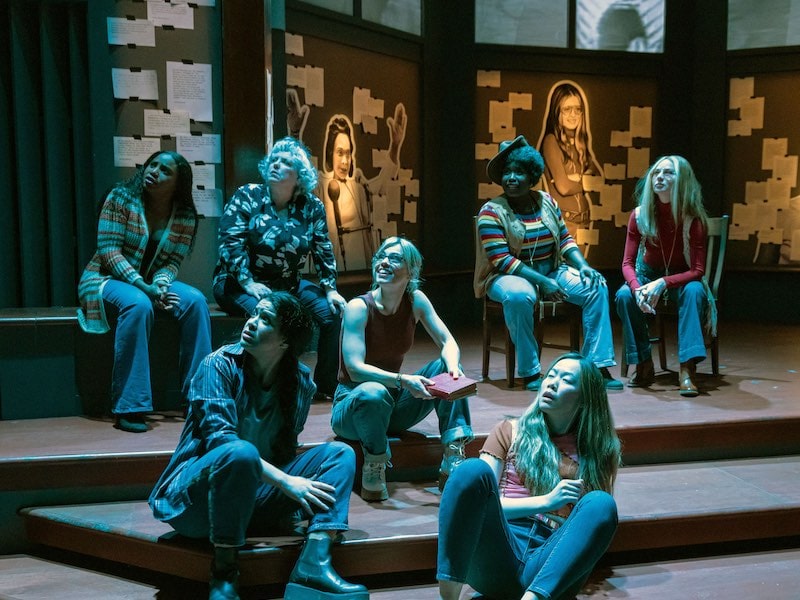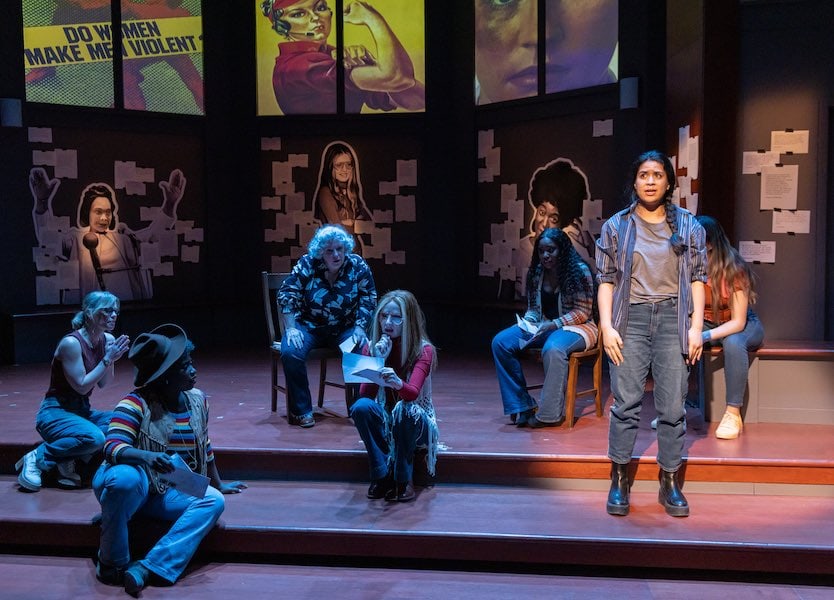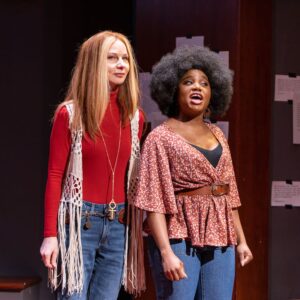The world needs Gloria Steinem like we need air to breathe. A paraphrase of the slogan popularized by the iconic second-wave feminist, it came of age alongside a generation of post-World War II young women who were seeking to break the constraints the patriarchy held on all aspects of their lives. And at this moment, when #MeToo and #BlackLivesMatter and the politicization of identity have infiltrated every corner of life in the United States, it feels right that we are looking back to move forward.
Gloria: A Life, a biographical overview of the life and times of Steinem feels important, not just for the post–second-wave generations who may need a primer on what came before, but for those of us who grew up during this period. For those women and men, Steinem’s life is a stark reminder of where we came from, for it recounts not only the successes of the Women’s Movement but also those not yet accomplished, including, briefly mentioned, the yet-to-be-ratified Equal Rights Amendment, and the Supreme Court’s recent Dobbs decision, which pulls back abortion rights.

On stage at Theater J’s Goldman Theater, Gloria finds a harmonious audience for this story of a Jewish girl from a working-class family who grows into an advocate, organizer, writer, and public figure in the fight for equal rights for women across all walks of life. On opening night, March 13, Steinem was present, and in alluding to the isolation of the COVID-19 pandemic, she stated, “We are precious and unique and we share our humanity…. I hope we maintain this connection. If nothing else, this past year has shown us how precious it is to be in a group so we can understand each other as we cannot do in the same way on screens.”
And that opportunity to understand and share came in what playwright Emily Mann labeled “Act 2: a Talking Circle.” There, the supporting actors carried microphones into the theater house to hear from audience members across generations and genders sharing questions and experiences illuminating why feminism matters for everyone.
The stage and walls of the theater itself, designed by Paige Hathaway, provide space for personal stories and reflections on Steinem’s influence and first-person accounts of the countless ignoble experiences women have faced in jobs, in applying for credit cards or mortgages, in advocating for their health needs, in education, all in all, in living life as a woman in a male-dominated world. On entering the theater, patrons are invited to take a clipboard and add their stories or thoughts to the walls — tape is available.
As Steinem, Susan Lynskey appears in ’70s garb, bell-bottom jeans and a body-hugging red turtleneck, Steinem’s trademark aviator glasses — explained in the first minutes — and lanky center-parted brown/blonde hair looking the part. Playwright Mann, artistic director and resident playwright at Princeton, New Jersey’s McCarter Theatre Center, lets Steinem narrate her own story, with a young and consciously diverse supporting cast of characters who play roles from Ruth Steinem, her mother, to sexist editors, beloved politicians like Rep. Bella Abzug, and fellow feminists from Dorothy Pitman Hughes and Wilma Mankiller.

Episodic in nature, and at times didactic — but it’s hard to argue didacticism for the right reasons, particularly when these shared stories of inequality, organizing, and consciousness-raising are viscerally felt as “ah ha” moments by younger generations in the audience. The now notorious exposé, when as a young freelance journalist Steinem went undercover and reported on the working conditions for Playboy Bunnies, is dealt with, as well as more private and painful memories of Steinem’s mother, who long suffered from depressive episodes.

Director Holly Twyford smartly focuses on the story, for Steinem was and remains a storyteller, through her journalism, her books, and, most profoundly and effectively, the talking circles she was introduced to where she began to listen to and collect women’s stories. These became the building blocks of the feminist movement and a way to humanize principles — of freedom, of equality, of equity — that were, for too many, difficult to grasp. Twyford allows the story and the tellers centerstage without too many distractions. Reflecting those stories, projection designer Danny Debner features a collection of video news clips, newspaper headlines, and photographs displayed above the mostly bare stage and repeated on the theater’s side walls. These clips do more than illustrate; they are integral to Steinem’s life story covering a half-century-plus of events including the 1972 birth of Ms. magazine and the subsequent adoption of the honorific Ms., intended not to indicate a woman’s marital status.
Lynskey’s physical portrayal of Steinem is uncanny, and she embodies her confident walk and charismatic presence. My only quibble is with the actor’s use of vocal fry — the low, creaky voice that particularly younger women use at the end of sentences. Granted Steinem’s voice has deepened and darkened with age, but I don’t hear in her the breathy rattle of vocal fry that Lynskey displays. The ensemble cast features Sherri L. Edelen (who does an ebullient impersonation of Abzug and a poignant portrayal of Ruth Steinem), Debora Crabbe (as Steinem’s sisterly close friend and confidante Pitman Hughes), Mani Yanglmau (displaying power through grace as Mankiller), along with strong supporting performances by Sydney Lo, Awa Sal Secka, and Erin Weaver playing a variety of men and women in Steinem’s life. Together, at the top of the show these women shared the land acknowledgment recalling the Nacotchtank and Piscataway Native American tribes who resided in the Washington, DC, region.

Gloria: A Life takes theatrical biography into a compelling realm, carrying forth for new generations a story that must be heard and reflected on. But as playwright Emily Mann noted at the top of the show, perhaps one of Steinem’s most admirable traits, and one reflected in this production, is the continuing quest for social justice. Steinem has said it succinctly: “I’m a hopeaholic.”
Running Time: Approximately one hour and 40 minutes with no intermission.
Gloria: A Life plays through April 2, 2023, at Theater J at the Aaron & Cecile Goldman Theater in the Edlavitch DC Jewish Community Center, 1529 16th Street NW, Washington, DC. Purchase tickets ($45–$85, with member and military discounts available) online or by calling the ticket office at 202-777-3210.
The program for Gloria: A Life is online here.
COVID Safety: All patrons in the Goldman Theater are required to wear masks covering their nose and mouth. Only performers and guests invited onstage may be unmasked. Masks are optional but encouraged in the Q Street and 16th Street lobbies, hallways, and other public spaces. For more information, visit Theater J’s COVID Safety Guidelines.
SEE ALSO:
‘Optimism is her legacy’: Holly Twyford on directing ‘Gloria: A Life’ at Theater J (interview by Ravelle Brickman, March 15, 2023)




